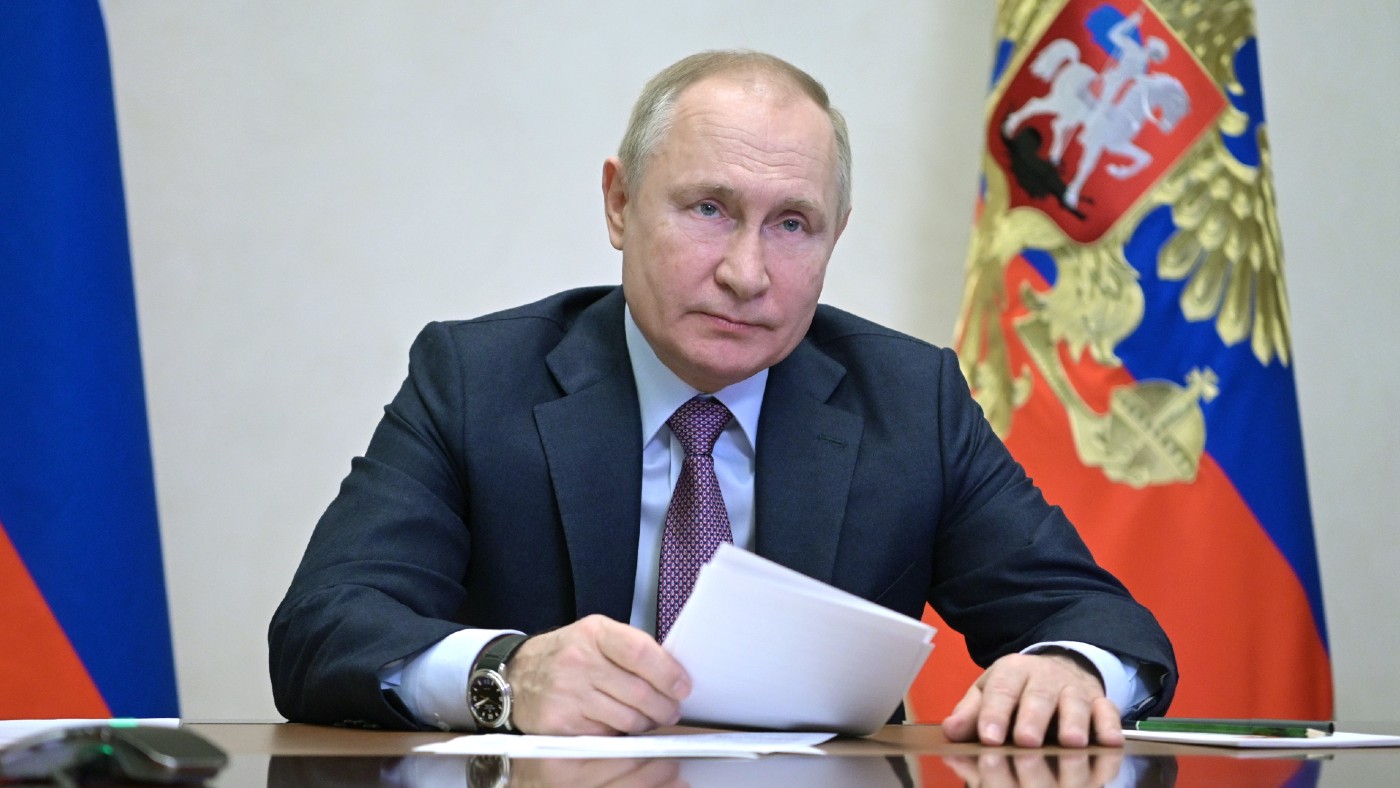VDV: who are Russia’s elite airborne force?
The paratroopers have ‘fearsome reputation’ but have suffered losses during Ukraine conflict

A free daily email with the biggest news stories of the day – and the best features from TheWeek.com
You are now subscribed
Your newsletter sign-up was successful
Vladimir Putin is sending his elite airborne troops into the eastern Donbas region in a bid to repel the Ukrainian counteroffensive, British defence chiefs believe.
According to the latest intelligence update by the Ministry of Defence(MoD), the Kremlin “has likely redeployed major elements of the VDV (airborne forces) to the Donetsk and Luhansk fronts” following the Russian retreat from the southern city of Kherson.
Russian generals are now believed to be focused on preventing “a breakthrough by Ukrainian forces on the front line between Kremina and Svatove”, reported the London Evening Standard. But the MoD claimed that the VDV units have been “severely weakened” by a series of humiliating losses during the war.
The Week
Escape your echo chamber. Get the facts behind the news, plus analysis from multiple perspectives.

Sign up for The Week's Free Newsletters
From our morning news briefing to a weekly Good News Newsletter, get the best of The Week delivered directly to your inbox.
From our morning news briefing to a weekly Good News Newsletter, get the best of The Week delivered directly to your inbox.
Who are the VDV?
The Vozdushno-Desantnye Voiska (“Air-landing Forces”) was formed from units of the Soviet Airborne in 1992 following the collapse of the Soviet Union.
The 45,000-strong VDV is mostly comprised of professional contract soldiers and is assigned to the most demanding operations. The elite paratroopers are distinguished by their blue berets and white-and-blue striped undershirts and have a “fearsome reputation for toughness and unflinching violence”, said The Telegraph’s Moscow correspondent James Kilner.
The VDV has “a distinctive culture and esprit de corps”, agreed Janes. But while the crack unit “is a fixture of parades and military open days”, said the open-source intelligence company, “it has long suffered from a tension in its roles”. From “Afghanistan to Chechnya”, VDV paratroopers have “repeatedly” been “pressed into service as light infantry because they had the toughness and willingness to act with the initiative that a mission demanded”.
The unit also served in the Balkans and in the 2014 Russian intervention in Ukraine’s Donbas region.
A free daily email with the biggest news stories of the day – and the best features from TheWeek.com
What role has the unit had in the Ukraine war?
VDV forces, which are denoted by “V” marks on their vehicles, have not fared well in the conflict triggered by the Russian invasion of Ukraine.
UK defence officials said in May that the VDV had been involved in “several notable tactical failures” since the conflict began. These included an attempted advance on Kyiv via Hostomel Airfield and “failed and costly crossings” of the Seversky Donets River, reported Newsweek
And an entire VDV mechanised patrol was ambushed and destroyed by Ukrainian special operators in the Kyiv suburb of Irpin in March.
That month also saw the death of Colonel Sergei Sukharev, who commanded a VDV unit “considered elite in its own right”, the 331st Guards Parachute Regiment, said Business Insider.
The losses triggered questions about VDV’s tactics in Ukraine. In the “shattered neighbourhoods” around Kyiv, the Russian paratroopers were “outmatched by the Ukrainians”, wrote the BBC’s defence editor Mark Urban. Given that the defenders were in many cases “simply local defence units or reservists,” Urban added, “that speaks to a basic failure in the VDV’s system of training and recruitment.”
In another humiliation, VDV forces were part of the failed Russian defence of Kherson. Russian forces withdrew ignominiously from the southern city earlier this month because the area had become too difficult to resupply.
What next for the VDV?
Russian hopes that the VDV can bounce back from recent setbacks are unlikely to have been boosted by claims that the unit’s ranks are being watered down. The latest briefing from the UK’s MoD said that “some VDV units have likely been reinforced with mobilised reservists” and that “these poorly trained personnel” would dilute the regiment’s “supposedly elite capability”.
The ministry added that “potential operational tasks for the VDV include supporting the defence of the Kremina-Svatove area in Luhansk Oblast or reinforcing offensive operations against the Donetsk Oblast town of Bakhmut”.
Whether the VDV can restore its reputation through success in such operations could significant impact the outcome of the war.
Chas Newkey-Burden has been part of The Week Digital team for more than a decade and a journalist for 25 years, starting out on the irreverent football weekly 90 Minutes, before moving to lifestyle magazines Loaded and Attitude. He was a columnist for The Big Issue and landed a world exclusive with David Beckham that became the weekly magazine’s bestselling issue. He now writes regularly for The Guardian, The Telegraph, The Independent, Metro, FourFourTwo and the i new site. He is also the author of a number of non-fiction books.